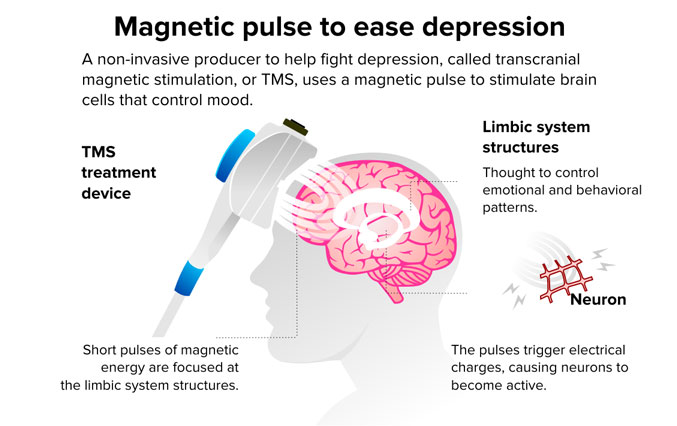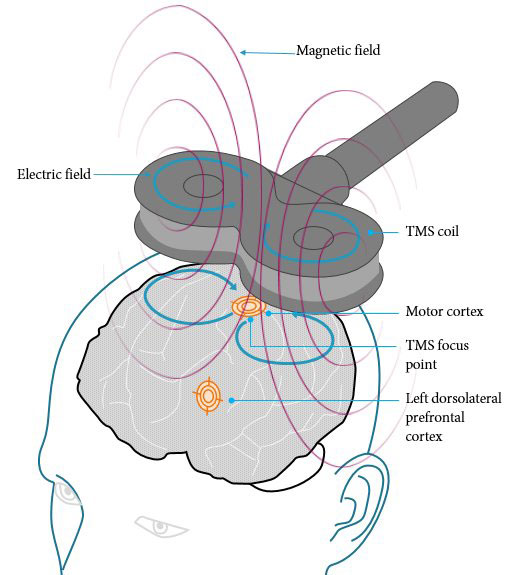Transcranial Magnetic Stimulation (TMS) is a procedure used on patients clinically diagnosed with depression. It is used when other conventional forms of treatment have been used to little or no avail.
These conventional methods include attempts at usage of antidepressant medication and psychotherapy. The procedure begins with an insulated plate being placed onto a patient’s head and sending electromagnetic pulses through their skull in order to stimulate nerve cells within the brain.

These same pulses are what is used in MRI’s and when they are done in succession, they are known as repetitive TMS, or rTMS. This rapid succession aids in altered mood for longer periods of time. While TMS is a non-invasive procedure, relying on the electromagnetic coils to deliver painless pulses, there are several factors to consider and prepare for prior to your first TMS procedure.
Meet with your physician and psychiatrist to perform physical examinations and a psychiatric evaluation, respectively, to ensure TMS is the right for you. Certain things such as whether you are currently on any mood enhancing prescription medications, existence of brain injuries, history of disorders such as psychosis or bipolar, and whether any metal devices have been previously implanted in the body.
 The last part is critical to note as metal devices such as stents or pacemakers can cause serious complications when combined with electromagnetic waves. While TMS is considered to be safe by medical professionals, there are rare but important side-effects to note. Usual ones may be light headedness, discomfort due to the MRI coils, light facial-muscle spasms, and headaches.
The last part is critical to note as metal devices such as stents or pacemakers can cause serious complications when combined with electromagnetic waves. While TMS is considered to be safe by medical professionals, there are rare but important side-effects to note. Usual ones may be light headedness, discomfort due to the MRI coils, light facial-muscle spasms, and headaches.
Serious yet rare ones include mania among BPD patients and seizures if prior precautions are not done adequately. After a series of sessions, depression symptoms should subside or may even go away completely. It is recommended to continue rTMS maintenance which includes visits after the initial series of treatment to monitor brain activity and deliver additional electromagnetic pulses as needed.
While Transcranial Magnetic Stimulation has been approved by the FDA and practiced by physicians nationwide, there is still much left to understand regarding the biology of why it is so effective.
With the onset of increased anxiety and MDD (Major Depressive Disorder) cases due to the isolation occurring from COVID-19, it is critical to consider this form of treatment as a viable option in order to effectively treat patients and alleviate symptoms of mental illness so they may be able to live their lives fully once again.
If you or anyone you know is suffering from traumatic brain injury or brain problems, our expert providers at Specialty Care Clinics will take care of your health and help you recover.
Call on 469-545-9983 or fill in the below form to book an appointment with Dr. David Masel.
